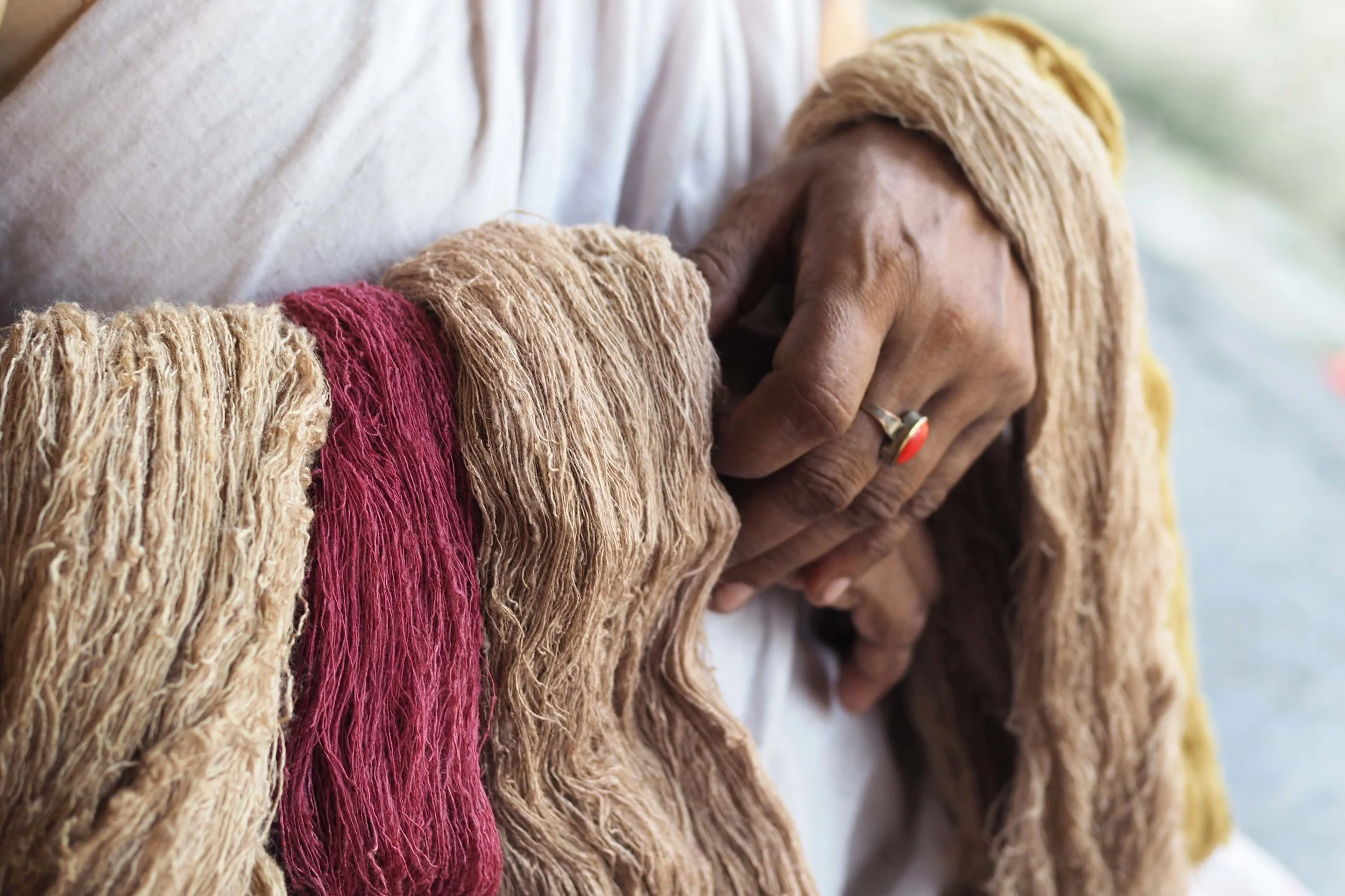Eri Silk – A Peaceful Silk in Assam, India
The cultivation and weaving of wild silk are rooted in the life and culture of the people of North East India, especially in the state of Assam in India. From the various types of silk of Assam, the rather unknown eri silk is particularly fascinating, as it is processed without killing the silkworm. Commonly silk cocoons are boiled with the worm inside to maintain one continuous filament, which results in a smooth and shiny fabric. Interestingly the eri silkworm spins short segments of a filament and creates a cocoon that is open at one end – enabling the moth to emerge. This peace silk is, therefore, a very popular fibre among vegans and Buddhists.
The humid climate of Northeast India is very favourable for the eri culture. Rural and tribal women traditionally carry out the processing, spinning and weaving as part of their daily life. For around 30 days the silkworm grows and munches on castor leaves until it reaches its final size. It then starts to spin its cocoon, which takes another 15 days. Once the moth leaves its cocoon, the silk is processed. In some areas, the silkworm is considered a delicacy and is also eaten. The empty cocoons are degummed by boiling in water, made into small cakes resembling cotton pads and then thrown against the mud houses for drying. Once the cakes are dry, they are used for spinning which is done similarly to spinning wool.
Eri silk is funnily enough also known as the silk of the poor. The status of eri clothes in the folklife of Assam is reflected in an old Assamese proverb ‘Dair pani, erir kani’, which implies that while curd (yoghurt) cools, eri cloth warms up a person (Chakravorty et al, 2010). Nevertheless, this eri silk has excellent qualities: it is very strong, combining the elegance of silk with the comfort of cotton and warmth of wool.
The more it is worn, the softer it gets and it is a great textile to be worn all year round. Its texture, especially when woven with handspun yarn, is profoundly beautiful – always changing with the charismatic touch of imperfection. The social enterprise we are KAL is creating contemporary products with eri silk by working closely together with artisans in Assam.











